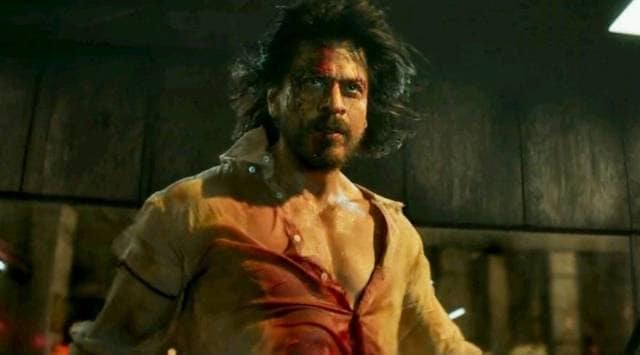Latest Comment
Post Comment
Read Comments
 Yashraj, represented by advocate Abhishek Malhotra, argued that the film has already been approved by CBFC, adding the producer had submitted the subtitles for the film at the time of approval. (Photo: Pathaan trailer)
Yashraj, represented by advocate Abhishek Malhotra, argued that the film has already been approved by CBFC, adding the producer had submitted the subtitles for the film at the time of approval. (Photo: Pathaan trailer) Noting that the experience of watching a film in a movie theatre cannot be denied to visually and hearing impaired audiences, the Delhi High Court on Monday directed Yashraj Films to prepare audio description, subtitles and close captions in Hindi for the OTT release of its upcoming film Pathaan, allowing visually and hearing impaired audiences to access the film, and submit it for recertification to the Central Board of Film Certification (CBFC).
While hearing a plea seeking visually and hearing impaired persons to access the film as per the rights guaranteed under the Rights of Persons with Disabilities Act 2016, a single-judge bench of Justice Prathiba Singh observed: “The present writ petition raises very important issues as to access of entertainment to the hearing and visually impaired persons. Under Section 42 of the RPWD Act 2016, the government has an obligation to take measures to ensure that all content is available in accessible formats for persons with disabilities. In the context of films, most importantly, special measures would have to be taken for hearing and visually impaired persons, as the experience of watching a film in a movie theatre cannot be denied to such persons.”
While the court refrained from passing any directions on the theatrical release of the film, on its OTT release, the HC directed Yashraj films to “prepare audio description, subtitles and closed caption in Hindi language within two weeks” and submit it to CBFC for approval by February 20. “On the same being submitted, the CBFC shall consider recertification of the film,” the court said, directing the board to take a decision on the same by March 10.
The plea was moved by four persons – a law student, two lawyers and a disability rights activist – who sought the enforcement of various rights and accessibility requirements as prescribed under the 2016 Act. Apart from Yashraj Films and OTT platform Amazon, Ministry of Information and Broadcasting (I&B) and Department of Empowerment of Persons with Disabilities under Ministry of Social Justice and Empowerment were added as respondents in the plea.
Appearing in person, advocate Rahul Bajaj, one of the petitioners, argued that despite rights of disabled persons being recognised under the 2016 Act and considerable amount of time having passed since, “films released in India are not catering to the disabled”. Bajaj said, “Apart from the subtitles being approved by CBFC, the audio description and closed captions has not been made available and even subtitles are only available in English and not in the language of the film, which makes it almost impossible for hearing and visually impaired persons to enjoy the feature film.”
It was submitted that Yashraj Films should be directed to add the audio description, subtitles and closed captions before the release of the film.
Bajaj further sought that the two ministries notify the required standards for accessibility to persons who are hearing and visually impaired. “Though certain guidelines have been issued in the past, the same have not been implemented and there are no sanctions for non-compliance,” Bajaj submitted.
On a query from the court, Bajaj said that in certain foreign countries, theatres make provision for headphones to be plugged into seats through which the audio description is relayed. However, in India, such facilities are not available in most film theatres, Bajaj added. “Despite this being the position, persons with visual impairment can enjoy audio description through applications which can be downloaded on smart phones, so long as the producer has arrangement with the said app and provides the requisite description to the app. Apps such as XL cinema and Shaza Cin provide this facility,” the court noted.
Yashraj, represented by advocate Abhishek Malhotra, argued that the film has already been approved by CBFC, adding the producer had submitted the subtitles for the film at the time of approval. Malhotra submitted that the producers would be “willing to take any steps which may be required in a reasonable manner in order to enable that its films are enjoyed by the hearing and visually impaired persons” as well.
The Centre’s counsel submitted that the I&B Ministry had issued certain directions in October 2019 to film producers associations and CBFC to use audio description and closed captioning in all films, further seeking time to obtain instructions on the actual status of the guidelines and directions, and their implementation.
The HC also impleaded the Indian Broadcasting and Digital Foundation, Film Producers Association and Ministry of Electronics and Information Technology in the matter granting them time to file their response by February 28 and listed the matter on April 6. Noting that the issue also pertained to “overall solution to ensure implementation of directions and laws”, the HC said that Yashraj may contact application providers to “explore a possibility of providing audio description and subtitling for the theatrical release of its future films”.